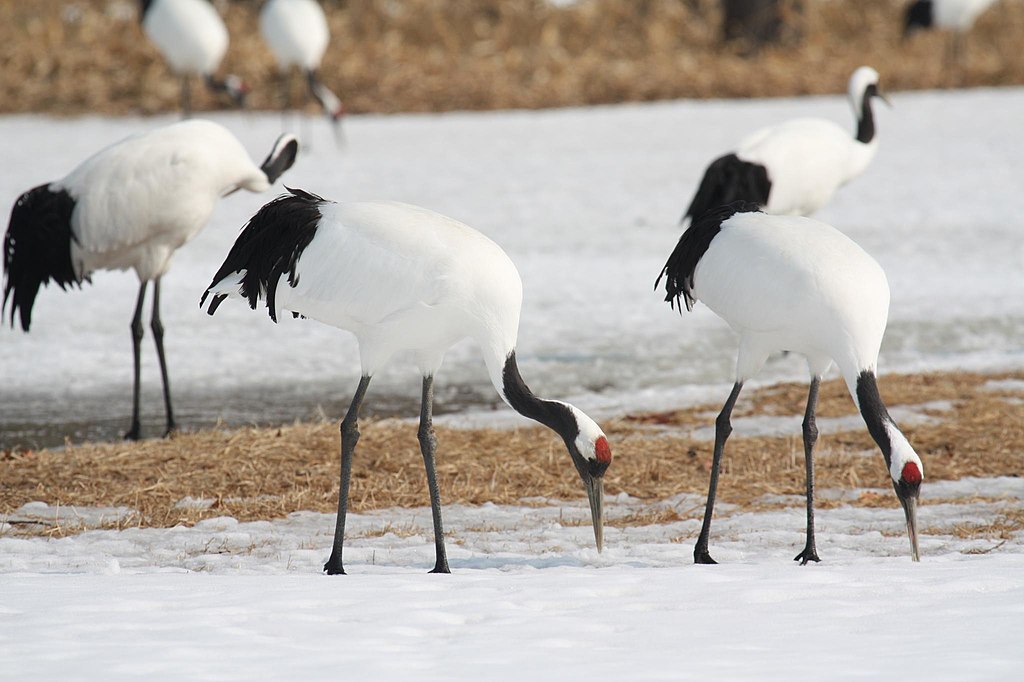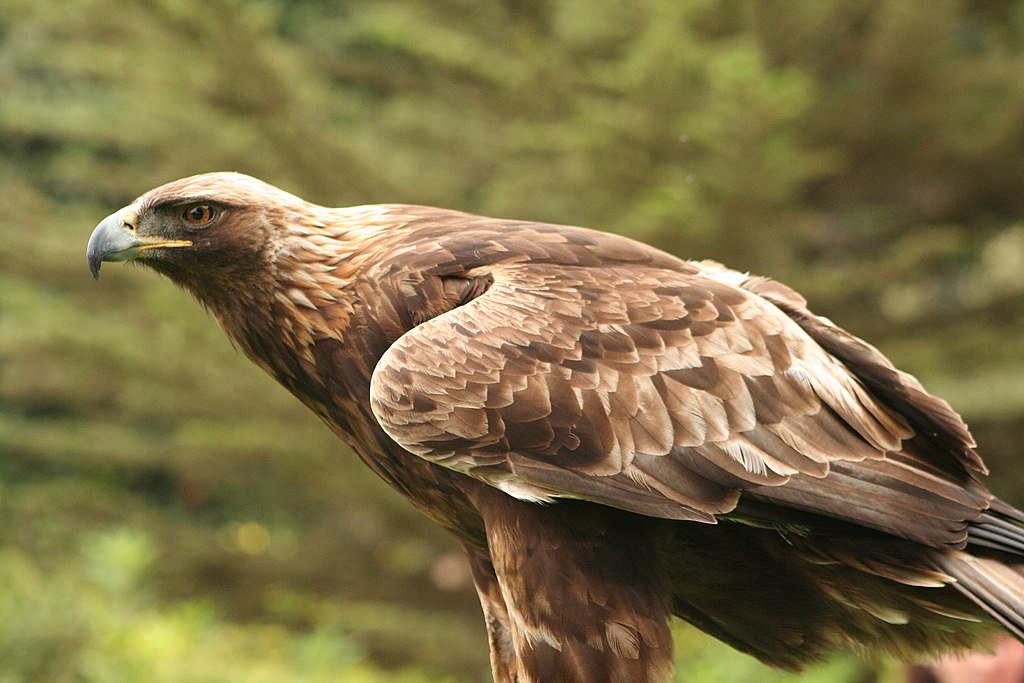Brazil vs. China
  | |
| Dario Sanchez, wikipedia Alastair Ray, wikipedia |
Brazil's glorified robin knock-off versus an animal sometimes called THE CRANE OF THE IMMORTALS? Sounds like an easy victory for China. There's more here, however, than meets the eye. The Rufous-bellied thrush is uniquely nationalistic, given his prominent placement in a famous national poem called Canção do exílio, and since Brazil is hosting this year's World Cup, he has a sizable home field advantage. However, the real reason that China is going to lose is that the Red-crowned Crane is not even truly their national bird. In 2008 China attempted to select a national bird, and was considering this crane or the Eurasian Tree Sparrow (who even knows). However, the contest was called off in controversy after it was reported that this crane's latin name translates to Japanese Crane. The country has never recovered from the indignity, and therefor is a lock to lose in the first round.
Brazil Wins!
Colombia vs. Uruguay
  |
| Emilio del Prado, Flickr Patricia Carabelli, Wikipedia |
Andean condor (cóndor andino) vs. Southern lapwing (avefría tero)
The Southern Lapwing is a cool bird, and it deserves respect for being an incredibly old species that survived the ice age. However, he's going up against the Andean Condor here, a bird that has been worshiped in andean cultures since at least 2500 bc. He was once believed to rule the upper world, and was closely associated with the sun god. And why not, as he's something like the 4th largest bird in the world. Sorry lapwing, you're not coming back from that one.
Colombia Wins!
Netherlands vs. Mexico
  |
| Andreas Trepte, Wikipedia 'Rocky', Flickr |
Once again the game comes down to preparation, with Mexico fielding an extremely bad ass and well established national bird in the Golden Eagle, and the Netherlands appearing to not really have an official national bird. The Eurasian Spoonbill here, while a nifty bird, is claimed to be the national bird of the netherlands only by an un-sourced ask.com user. Another blog claimed the Netherlands national bird is the Caribbean Flamingo, but I think that may have been a joke. The golden eagle, or, as he's called in Mexico, the Mexican Eagle, is a well known bad ass. The national bird of fully five countries, he was once used by humans to hunt down wolves. Wolves! Mexico may just win this whole thing.
Mexico Wins!
Costa Rica vs. Greece
  |
| Amateurnithologist, This Blog Arturo Nikolai, Wikipedia |
Clay-colored thrush (Yigüirro) vs. Little owl (Αθηνά η νυκτία (lit. Athena's Owl))Despite your amateurnithologist's personal affection for Costa Rica, they've got a hard road ahead of them in this match against Greece. The Yigüirro may start the rainy season with his call, but in Greek Myth the little owl sits on the shoulder of, and is occasionally the avatar for, Athena herself. Ultimately their place in their respective cultures' mythologies is a wash, and Greece squeaks by (squawks by?) in a narrow victory.
Greece Wins!
France vs. Nigeria
 |
| Gandalf le Blanc (uh-huh), Wikipedia Fabien Khan, Wikipedia |
Gallic rooster (Chanteclair) vs. Black crowned crane
How do you know when a country loves it national bird? That's what this match-up comes down to. Frankly you want to give it to Nigeria right out of the gate, with that super cool and distinctly Nigerian bird (found out that the national language of Nigeria is English in doing my research for this article, so... the more you know, I guess). Nigeria even has this crane on a beautifully illustrated stamp. And France's bird is a rooster. I mean, come on. However, as I research, France slowly won me over. The wikipedia article is voluminous, and chock-full of interesting information (as well as instances of the phrase "sacred cock"). This is the rooster, for example, that appears on weather-vanes. He is not just a national bird, but a national symbol of France. That kind of dedication is rare. What sealed the deal for me, however, was when I found out that France had a Gallic Rooster named Footix as its World Cup Mascot back in 1998. With that kind of football history, how can you lose?
France Wins!
Germany vs. Algeria
  |
| 'Karlo', Picassa Umberto Salvagnin, Flickr |
Not only does Algeria not have a national bird, it doesn't even have an unofficial or widely considered national bird. Furthermore, these tiny foxes (who are nominated by virtue of being Algeria's national animal) have to face the fearsome German terror of the skies. No, not The Red Barron, the Sea Eagle, who is basically a European version of our very own Bald Eagle. This is a bird so tough that it was nearly extinct in 1970, but has made a dramatic recovery since then. None of that matters, however, since Algeria hasn't even fielded a bird. I hate to say this, but Algeria simply does not care about birds. Get it together Algeria.
Germany Wins!
Argentina vs. Switzerland
  |
| Dario Sanchez, Wikipedia CJ Hughson, Wikipedia |
Is that Costa Rica's national bird again? No, of course not, how could you make such an obvious mistake? The Hornero Rojo is actually pretty distinct because he's an ovenbird, one of the more architecturally inclined families. He builds his nest with transported mud, and it's sturdy enough that other bird species can use it too after he's departed. Switzerland, shockingly, does not have a bird. I have selected nearby (?) Luxembourg's national bird to represent him, but he just doesn't want to play. The Goldcrest is sometimes called The King of Birds in European Folklore. Is he the king of birds? Maybe someday we'll find out. He is a great bird, but it's inexcusable that a large and real country like Switzerland hasn't chosen a bird yet. In fact, they don't have a national motto or animal either, claiming that "Switzerland is a country formed of originally distinct linguistic groups, and it can be difficult to find symbols of importance to all such groups". Yeah, that's nice Switzerland, but you just lost the World Cup.
Argentina Wins!
USA vs. Belarus
 |
| Yathin S Krishnappa, Wikipedia Carlos Delgado, Wikipedia |
White storks are really cool and have a unique cultural place almost everywhere they are found. In Egypt they are depicted as The Soul in heiroglyphs, in Hebrew their name means Kind, and in Greek and Roman mythology they are symbols of parental devotion. Yeah, this is the stork that caries the babies. However, and this Bald Eagle is totally cool and is also culturally important to the native people in the places he lives. Considered to be a messenger between the gods and humans by some cultures and his feathers are given as gifts upon the completion of a great task. It's a close one that I think the stork probably ultimately wins, but I'm a dumb american who doesn't know anything about soccer, and I want to believe. USA! USA! USA!
USA Wins! (Just kidding, we are totally gonna lose)
Check out our twitter handle for predictions on later rounds of the tournament. Happy World Cup everyone!
No comments:
Post a Comment